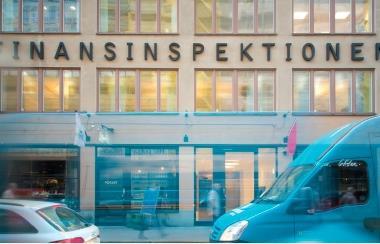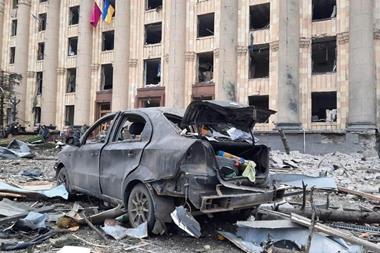Norway’s finance ministry has announced Russia and Belarus will join North Korea and Syria on its list of countries whose government bonds the Norwegian sovereign wealth fund (SWF) is barred from investing in, but said the NOK11.3trn (€1.2trn) fund is not a foreign policy instrument.
The ministry announced on Friday: “Based on the Ministry of Foreign Affairs’ assessments, the Ministry of Finance has concluded that Syria and North Korea will continue to be covered by the government bond exemption and that Russia and Belarus will be added.”
It said Norges Bank, which runs the Government Pension Fund Global (GPFG) via its Norges Bank Investment Management (NBIM) division, and the Council on Ethics, had been informed of the decision.
The ministry also repeated in the announcement that in light of the war in Ukraine, the government had decided to freeze and undertake sales of all the GPFG’s investments in Russia, and had decided that the fund’s investment universe would no longer include Russia, including financial instruments, real estate, infrastructure and cash.
On 15 March, NBIM submitted its plan for divesting the SWF’s Russian assets, as it had been instructed to do by the ministry on 28 February.
The ministry then wrote to NBIM a week ago, agreeing with the bank’s recommendation that the freeze on the fund’s investments in Russia be lifted, and sales carried out, only when markets were functioning more normally, and asked the central bank to follow the market situation closely.
The government bond exemption (Statsobligasjonsunntaket) is part of the management mandate of the GPFG, and apart from effectively blacklisting the sovereign debt of the countries it includes, there is also a criterion in the fund’s ethical guidelines that deals with the sale of weapons or military equipment to those states covered by the bond exemption.
The ministry said in Friday’s announcement: “The GPFG is not an instrument of foreign policy.”
The government bond exemption was only used in exceptional cases, it said, where the ministry had excluded such investments because of particularly extensive UN sanctions or other particularly broad international measures aimed at a specific country, and where Norway had agreed on the measures.
Over the years, the Norwegian government has often stated that the GFPG is not a foreign policy instrument.
In its white paper on the GPFG a year ago, the finance ministry noted that the commission appointed in 2019 to evaluate the ethically-motivated guidelines of the fund found the bond exemption to be “an objective and not very problematic criterion”, and was not in favour of removing it.
The GPFG had no investments in Russian government bonds at the end of 2021, but a year earlier, it had NOK6.7bn or 0.1% of its total assets invested in Russian state debt – though no Belarusian assets.
The fund had Russian equities valued at around NOK27bn at end of 2021, but on 3 March – soon after the freeze had been announced, NBIM’s leaders said those investments were then estimated to be worth only around NOK2.5bn.
In its letter to the ministry of 15 March, Norges bank said Russia had been removed from all of FTSE Russell’s indices at a price approximately equal to zero from 7 March 2022.
Read the digital edition of IPE’s latest magazine














